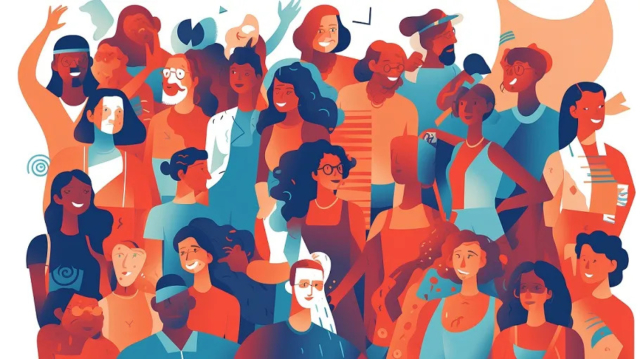The Role of AI in Shaping Modern Workplace Cultures

Jul 27, 2025
Last updated on Jul 28, 2025
CEOs in AI-adopting industries are seeing nearly five times higher labor productivity growth than their peers. This isn't just an operational advantage. It's the result of understanding the role of AI in workplace culture and how it fundamentally shifts management approaches. While productivity gains grab headlines, the deeper change lies in how AI helps leaders build more responsive, inclusive, and aligned cultures that drive lasting competitive advantage.

Key takeaways
- Organizations using AI strategically see nearly five times higher productivity growth while building more innovative, people-focused cultures
- AI shifts culture management from yearly surveys to real-time insights that help leaders spot and fix problems before they grow
- The technology handles routine work so employees can focus on strategy, creates personal experiences for diverse teams, and improves teamwork through smart optimization
- Success needs clear leadership that addresses risks like employee fear and bias while building trust through open communication and ethical rules
The era of shaping culture through guesswork and annual surveys is over. AI and organizational culture now work together through data-driven, real-time insights that allow for proactive leadership. The C-suite recognizes this potential. Nearly 80% of global business executives report that AI has already improved workplace efficiency and productivity, and a large majority expect AI to have a transformational impact on their organizations in the next five years. Executives also highlight AI’s role in fostering innovation and supporting more dynamic, people-centered work environments. For leaders, the focus is now on how to use AI strategically to build a stronger, more resilient organization that drives measurable performance.
1. Shift from guesswork to data-driven decisions
AI moves culture management from reactive to proactive. Instead of waiting for problems, you can see them coming. AI-powered sentiment analysis finds patterns in employee feedback and spots cultural gaps before they become bigger issues. This capability changes how leaders understand and respond to workplace dynamics.
Real-time pulse surveys give instant insights into engagement. Leaders can address concerns right away instead of waiting for quarterly reports. Managers get immediate alerts when morale drops or friction appears. This creates a more agile, caring culture where employee voices are heard and acted upon quickly.
According to a study:
- 81% of employees believe AI improves their job performance
- 68% want their employers to deploy more AI-driven workplace solutions.
- Nearly all executives believe AI-powered insights are crucial for organizational success, and a majority report improvements in decision-making and productivity due to AI adoption.
These insights provide the foundation for strategic cultural initiatives that directly impact business performance.

2. Boost productivity and free employees for high-value work
AI automates low-value tasks and unlocks significant human potential. By 2035, AI is projected to boost employee productivity by 40% by handling repetitive administrative work like scheduling, expense approvals, and routine HR requests.
This automation strategy delivers immediate benefits. When employees are freed from mundane activities, they can focus on strategic thinking, collaboration, and innovation. This is the very work that drives competitive advantage and strengthens organizational culture.
IBM shows how this works in practice. They developed an AI-powered predictive model that identified employees at high risk of burnout and disengagement. By using AI insights to offer personalized wellness and career growth programs, IBM successfully reduced turnover and enhanced workplace culture. This case shows how predictive analytics can transform reactive HR approaches into proactive cultural investments that deliver measurable business results.
3. Personalize the employee experience at scale
A one-size-fits-all approach no longer works in today’s diverse, multi-generational workforce. The AI influence on the work environment becomes most apparent when companies need to address the unique needs of five generations working side by side, each with different communication styles and career expectations.
AI enables personalization that creates a deep sense of belonging across different employee segments. For benefits administration, AI-powered platforms analyze employee preferences and usage patterns. This ensures tailored recommendations that align with individual needs while reducing administrative burden on HR teams.
The technology addresses generational differences effectively through enhanced employee experience strategies:
- Younger employees benefit from AI-driven mentorship pairing tools that match them with experienced colleagues
- Older employees receive personalized career development and learning pathways that keep them engaged in a digital-first workplace
Communication becomes more effective through intelligent targeting. AI-driven internal communication tools deliver personalized content through dynamic digests and smart alerts. These tools adapt to individual preferences and behaviors, creating a more respectful and responsive information culture. This approach is particularly valuable in hybrid and distributed work environments where traditional communication methods often fall short.
4. Enhance team collaboration and innovation
Strong cultures thrive on effective teamwork. Advanced analytics remove friction and actively foster better collaboration by understanding how teams work best together.
AI-powered platforms analyze work habits and suggest optimal team structures for cross-functional projects. These insights help leaders form more effective teams based on data rather than assumptions. This improves project outcomes and strengthens collaborative relationships across the organization.
Collaboration tools use AI to recommend brainstorming partners based on expertise and past collaboration success. This intelligent matching enhances innovation by connecting individuals who might not otherwise work together. It fosters knowledge transfer and creative problem-solving across organizational boundaries.

While the benefits are significant, a poorly managed AI integration can create new problems. Leaders must acknowledge potential employee resistance stemming from fear of job displacement and anxiety about negative impacts. This resistance can show up as skepticism and reluctance to embrace new AI initiatives, potentially undermining cultural transformation efforts.
Understanding AI’s impact on the job market helps leaders address these concerns proactively. AI technologies raise ethical concerns around privacy, transparency, and algorithmic biases. These can challenge existing cultural values and norms within organizations. Ignoring these concerns can lead to legal problems, regulatory sanctions, and reputation damage that undermines trust and organizational integrity.
Effective leadership and communication are critical for managing cultural transformation during AI adoption. Leaders must show commitment, transparency, and empathy while providing clear direction and support throughout the implementation process. Professional HR consulting services can help organizations navigate these complex transitions while maintaining cultural integrity. Without proper communication, employees may see AI as a threat rather than an opportunity.
The role of AI in workplace culture is fundamentally reshaping the modern workplace, and its most profound impact may be on your company’s cultural foundation. The organizations that thrive will not be those that simply adopt the technology, but those that use it with intention.
Successful implementation requires comprehensive training and development programs that help employees adapt to new ways of working. By using AI to listen, support, and connect with your people at scale, you can build a more resilient, high-performing culture that becomes a sustainable competitive advantage. The time to build this future is now.
Ready to master the art of cultural transformation in the AI era? Join forward-thinking leaders at The Makeover 2025: SAILING AHEAD, where you’ll explore proven strategies for “mastering HumAIn workforce” and discover how to build cultures that embrace AI as an opportunity, not a threat. Learn from real case studies of companies that successfully transformed their workplace cultures while implementing AI at scale.

Solve your HR problems!
6th Floor, Star Building, 33 Mac Dinh Chi, Saigon Ward, Ho Chi Minh city, Vietnam




